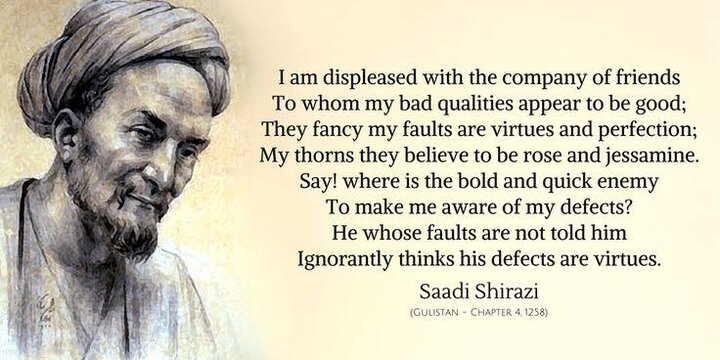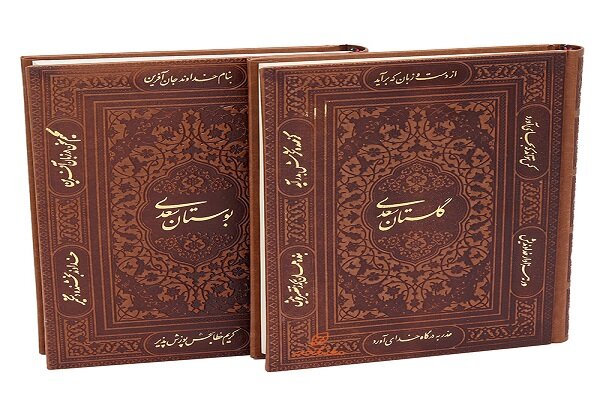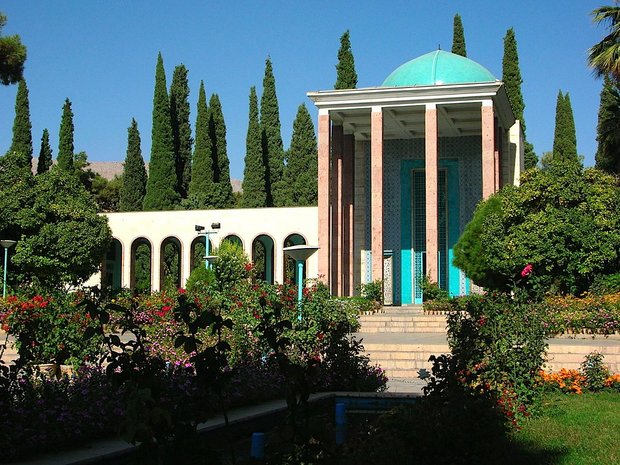Iranians mark the National Commemoration Day of the renowned Persian poet Saadi Shirazi on April 20 every year.
Iran has been the land of literature for centuries. Saadi Shirazi is one of the Iranian poets with international fame. His poetry has become popular throughout the world.
Being one of the most prominent Persian poets in Iran’s history, Abu-Muhammad Muslih al-Din bin Abdallah Shirazi, known by his pen-name Saadi, was born in Shiraz around 1200 and passed away around 1292.
Saadi is widely recognized as one of the greatest poets of the classical literary tradition, earning him the nickname “The Master of Speech” or “The Wordsmith” among Persian scholars. He has been quoted in the Western traditions as well.
He is highly recognized for the quality of his writings and for the depth of his social and moral thoughts.

Saadi was born in Shiraz around 1200. He died in Shiraz around 1292. He lost his father in early childhood. With the help of his uncle, Saadi completed his early education in Shiraz. Later he was sent to study in Baghdad at the renowned Nezamiyeh College, where he acquired the traditional learning of Islam.
The unsettled conditions following the Mongol invasion of Persia led him to wander abroad through Anatolia, Syria, Egypt, and Iraq. He also refers in his work to travels in India and Central Asia. Saadi is very much like Marco Polo who traveled in the region from 1271 to 1294. When he reappeared in his native Shiraz he was an elderly man. He spent the rest of his life in his birthplace till he passed away.

His best-known works are the Bustan (The Orchard) and the Golestan (The Rose Garden). The Bustan is entirely in verse (epic metre) and consists of stories aptly illustrating the standard virtues recommended to Muslims (justice, liberality, modesty, contentment). The Golestan is mainly in prose and contains stories and personal anecdotes. The text is interspersed with a variety of short poems, containing aphorisms, advice, and humorous reflections.

Sense of humor plays an important role in Saadi’s works. We can find the roots of the characteristic in the poet’s thought and point of view. Saadi Shirazi’s poetry is replete with joviality and esprit.
He prevents dullness in his poems by the use of a sense of humor. This way, Saadi has made his poetry more influential and effective.
Bani Adam, meaning “Sons of Adam” or “Human Beings”, is the name of a famous poem by Persian poet Saadi Shirazi from his Golestan:
“Human beings are members of a whole
In creation of one essence and soul
If one member is afflicted with pain
Other members uneasy will remain
If you have no sympathy for human pain
The name of human you cannot retain.”

Saadi’s tomb is located in southern Shiraz. His mausoleum, also called Saadieh, is one of Iran’s major tourist attractions.
The tomb was first built in the 13th century. However, after being destroyed in the 17th century, it remained untouched till the present-day building was constructed in the 1950s.
Many Persian elements have been used in its architecture. It is also a National Heritage Site.
Every year, a number of literati and scholars from around the world gather at the mausoleum on April 20 to commemorate the great Persian.






